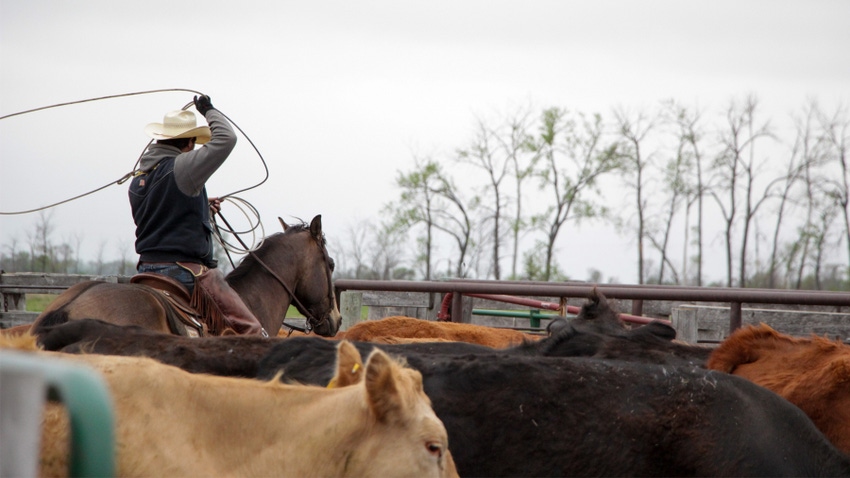
A vital nutrient in a horse’s diet is protein, but the amount needed varies based on the animal’s age and workload. The right amount of high-quality protein will provide essential amino acids to support optimum horse health.
Protein is often seen on feed labels as “crude protein,” which refers to the total protein content in the ration. It can come in the form of forage, grain and processed feed. Alfalfa and other legumes have a higher protein content than grass hay, which makes them a higher-quality feed. While protein is essential, too much consumed in the diet can cause kidney damage, so care must be taken to hit the proper amount.
Whether your horse performs at rodeos each weekend, is raising a foal or just taking you on leisurely trail rides, each has its own requirements. Consult a veterinarian or nutritionist for best results. The following categories can help you estimate if your horse is getting enough protein:
Weanlings and yearlings. Protein plays a critical role in the diet of young horses, with mare’s milk serving as a rich source of lysine. Aside from this milk, alfalfa, grasses and cereal grains contain this nutrient.
Iowa State University Extension recommends that a 550-pound weanling receive about 1.5 pounds of protein per day, while an 850-pound yearling has about 1.75 pounds daily. Increasing grain or concentrate can help ensure the correct amount is consumed by the young animals. Up to 2 pounds of protein may be needed daily for animals in training programs.
Mature equine. Fully mature horses performing light to no work need only 1.4 pounds of protein each day. Adult horses need protein in their diets only to repair and maintain the body, making for a low total requirement. This requirement is usually met through grazing or feeding grass hay, provided the quality is average or above.
Workhorses. Horses who have a medium to heavy load of work should consume 1.7 to 1.9 pounds of protein per day. For horses involved in regular athletic activity, protein works alongside starch, fat and fiber to fuel working animals. Excess protein consumed can be turned into a source of energy, as the amino acids present in the excess protein are broken down by the liver.
Generally, performance horses can meet their nutrition requirements through grass or legume forage, alongside grain or concentrates.
Broodmares. A broodmare in the last 90 days of gestation needs about 2 extra pounds of protein daily for her own requirements and to build fetal tissue, according to Oklahoma State University Extension.
Lactating mares have the highest protein requirement of all, as large amounts of protein leave through the mare’s milk. For horses that do not receive enough protein, owners can expect to see decreased milk production and lowered foal growth. From 3 to 3.4 pounds of protein is needed each day for this class.
Many combinations of feeds and rations are available to horse owners to ensure a proper amount of protein is fed. Start with a high-quality forage, supplementing as needed with a grain or concentrate. Check out this Iowa State University publication on equine protein requirements, or contact your local Extension office for more information.
Read more about:
NutritionAbout the Author(s)
You May Also Like






